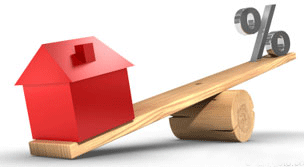Why does anyone choose an ARM???

One of the first choices you come across when deciding on a mortgage is Fixed Rate or ARM. Most people will respond quickly with 30 yr fixed, some will say 15 yr and even less will say tell me about both. Let’s start with a definition, ARM stands for Adjustable Rate Mortgage and it means that the rate will be fixed for a certain period and then adjusts based on anniversary dates. Most ARM’s are amortized for 30 years now a days but as with most mortgages you can pay more towards principal as often as you want to pay it off sooner (be sure to ask your lender if there is a pre-payment penalty).
ARM’s are usually categorized by the length of time the rate is fixed. For example a “7 year ARM” rate is fixed for 7 years of payments and then the rate will adjust on the 7th anniversary of your closing date. When an ARM adjusts it uses an index (1 yr LIBOR is commonly used) and a margin (2.25 is common but it can vary based on the lender). So let’s assume someone did a 7 year ARM 7 years ago at 4% and today is the adjustment date. We would look at the posted 1 yr LIBOR (London Interbank Offered Rate) which is 1.54 today and add 2.25 to that to establish the mortgage rate for the next year, which would be 3.79%. There will be caps associated with the rate adjustments. For example, 5/2/5 means the first adjustment can increase or decrease the rate by a maximum of 5% and subsequent adjustments are maxed out at 2%. No matter what the adjustment is though, the lifetime cap is 5% above (or below) the start rate.
So now that we have covered the definition and technical stuff, why would anyone choose an ARM? It’s all about risk and reward! I read several projections on how long people stay in their homes and the results were all over the board, which is probably understandable. There are a lot of factors that influence how long a person stays in one home, which is the risky part. If we all knew when we were going to move or refinance, choosing an ARM product would be easy, but most of the time we don’t so it can be hard. Let’s look at a hypothetical example to get an idea of the reward and see if it’s even worth the risk-
Dr. Davis just got out of fellowship and is buying a $500,000 home with no money down and is using one of the experienced lenders he found on www.doctorloanprograms.com. He decided on a 30 year fixed rate mortgage at 3.99% and his payment is $2,385 (yes I rounded it, and for this example I’m just going to look at the principal and interest portion of his payment). 7 years later he goes to sell his house and at that point he owes $430,198.
Now let’s say he went with the 7 year ARM and his rate was 3.49% (half of a point less in rate is about right) and his payment was $2,242. After 7 years he would owe $425,120. He would have saved $143 a month, which equals about $12,000 in savings over 7 years. The payoff on his mortgage would have also been $5,000 less so his total savings would be about $17,000 or $2,428 a year.
If Dr. Davis bet that he would sell his home within 7 years and went with the riskier ARM product, then he would have a significant reward in the amount of $17,000 of savings. Obviously there is another side to this and let’s say that Dr. Davis did not sell within 7 years and instead stayed in the house for 15 years. What if rates went through the roof and he couldn’t refinance? Assuming his rate adjusted to the max (8.49%) after 7 years, his payment would go up by $1,457 a month. The $17,000 of savings would be gone in less than a year and he would be in the hole compared to the 30 year fixed loan.
I hope this helps you better understand why some choose ARM’s and others don’t. It is worth asking your lender to run the numbers on both the ARM and the fixed rate mortgage to see which option makes the most sense for you!
Doctorloanprograms.com contributor
